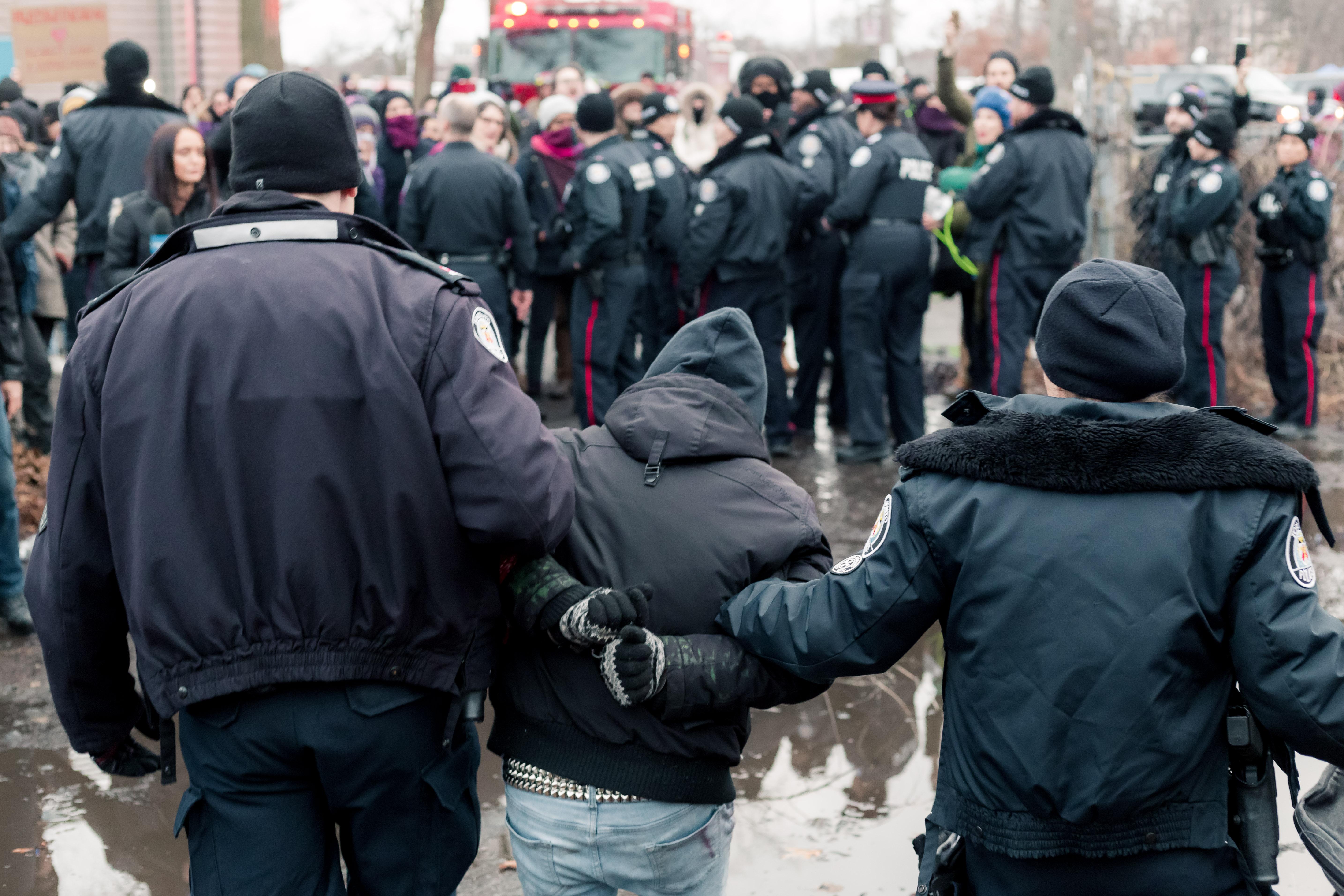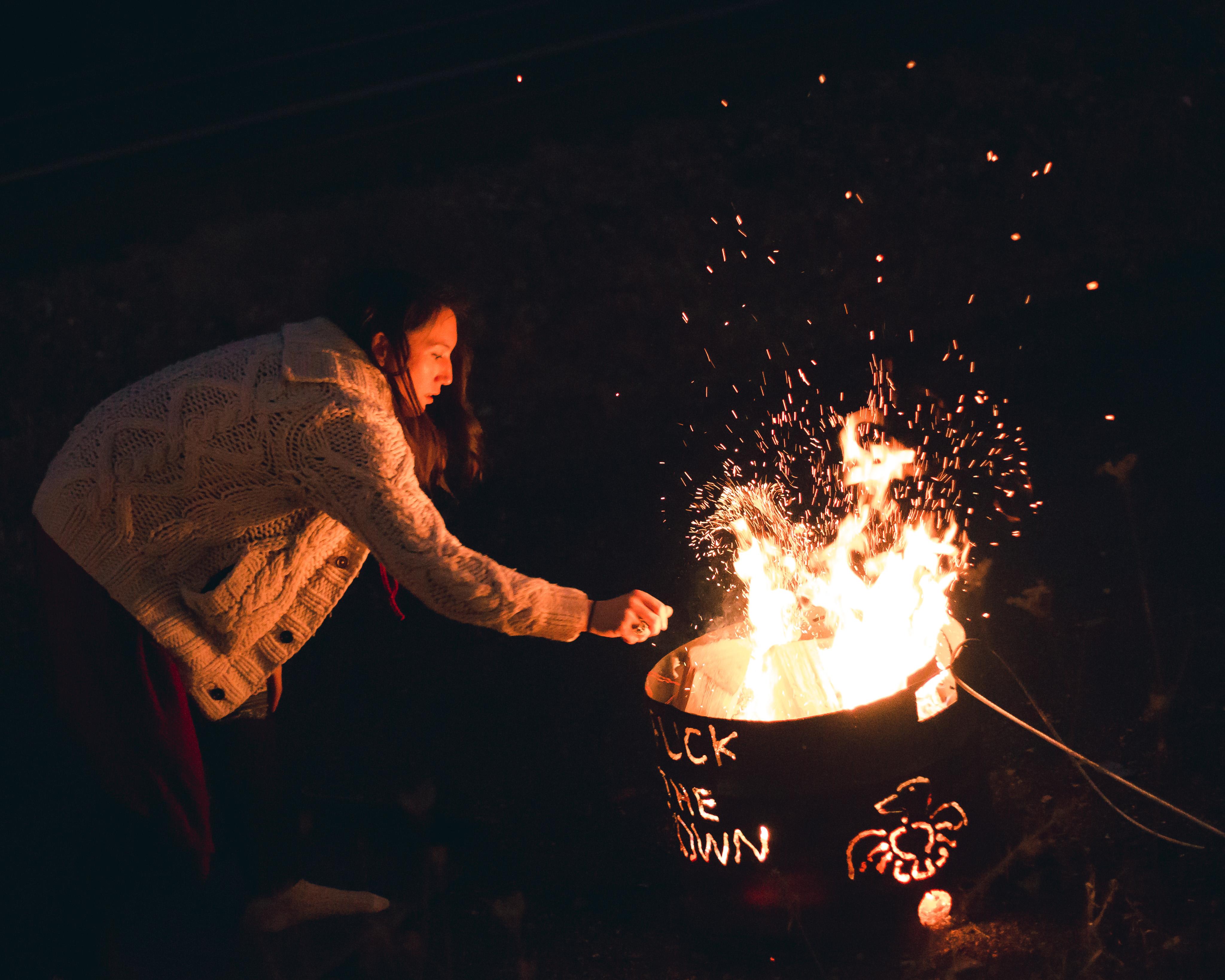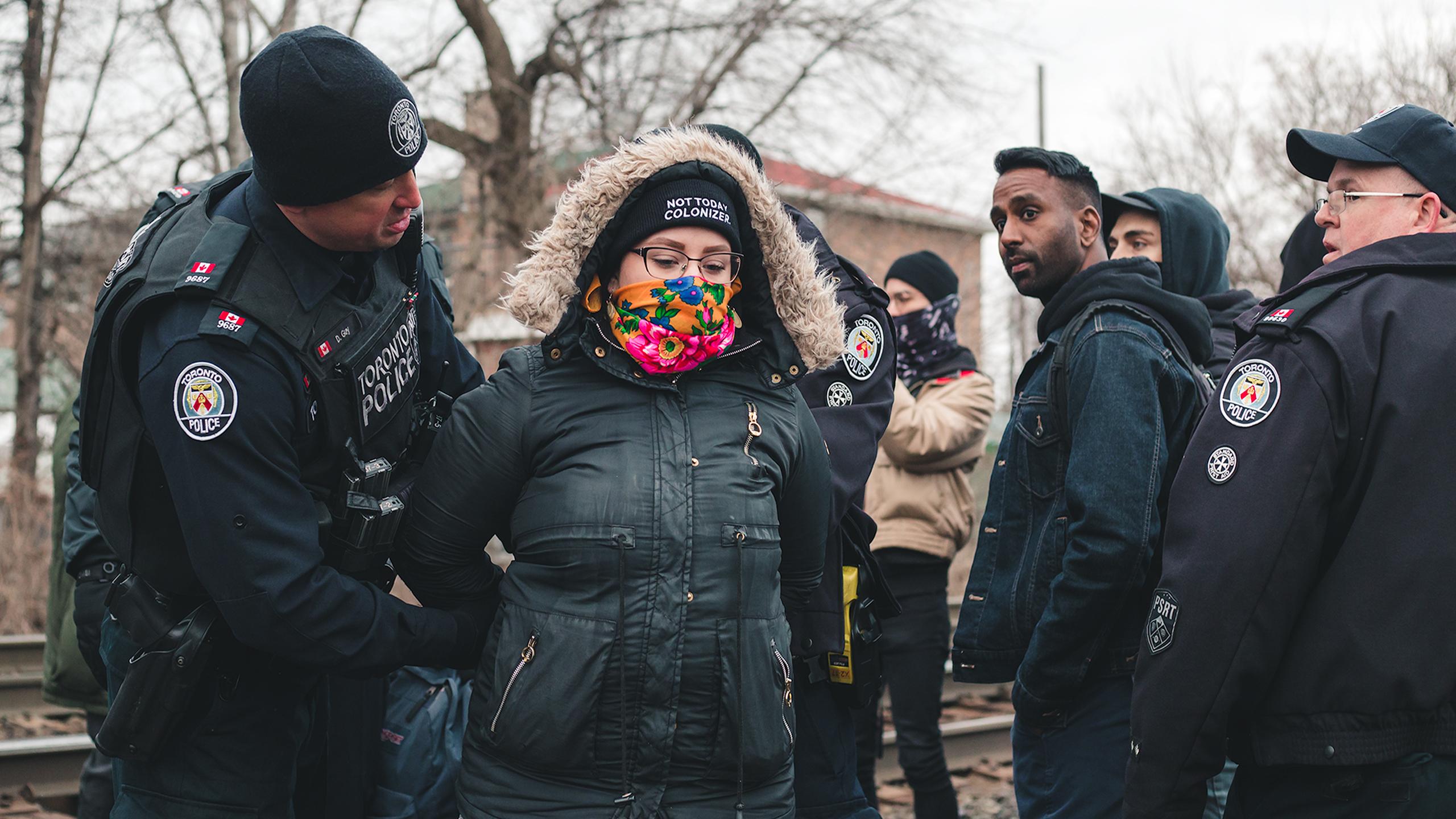We spoke to Ryerson community members about why they stand in solidarity with blockades
By Rhea Singh
A peaceful blockade on the railway tracks in the Dundas and Jane area took place Tuesday afternoon. The blockade, which started at 3:30 p.m., was in response to the recent Tyendinaga arrests.
At the blockade, there were drum circles, human chain-links and beading taking place on the tracks. Banners were hung on the gates of the railway tracks and a neon-green sign was held by land defenders reading ‘Land Back’. Land defenders had notified CP railway that they were blockading the tracks.
The location of the protest was revealed to the public at 4 p.m., but land defenders had arrived at the tracks at 3:30 p.m. Over 50 demonstrators were on the tracks by 5 p.m. Toronto Police Service (TPS) officers showed up to the tracks at 4 p.m. with over 15 service vehicles on-scene within the hour.

TPS threatened to arrest land defenders on the tracks with charges of mischief with a $5,000 fine or jail time. Eight arrests were made during the blockade, including police liaison who was asked to be present by the land defenders. It has yet to be confirmed whether detained protestors have been released with or without bail conditions.
“If you were here to protect us, why are you dragging us and causing violence,” said a land defender to the TPS officers.
Since Dec. 31—when the B.C. Supreme Court granted Coastal GasLink an injunction calling for the removal of any obstructions on any roads, bridges or work sites the company has been authorized to use—Wet’suwet’en land defenders have peacefully resisted the ruling. Since then, land defenders have been arrested on Wet’suwet’en territory, with six arrested on Feb.,6. On Monday 10 land defenders were arrested by Ontario Provincial Police on Tyendinaga Mohawk blockade site in Belleville, ON.
Bailey Jung, a third-year architecture student, said the blockades have brought attention nationwide about the issue at hand.
“They brought attention to the subject across the nation…and attention on a federal level,” said Jung. “There is an unequal representation of opinions in the media.
Carson Martone, a third-year media production student, said media coverage on blockades tends to focus on train delays and people affected by it, not why the blockade is happening.
“If you were here to protect us, why are you dragging us and causing violence?”
“The trains have nothing to do with the actual problem, [land defenders] did that so their voices could be heard,” said Martone. “Now it’s completely become about the wrong issue.”
“With the [land defenders] it’s so easy to make it about others and not actually focus on [Indigenous] needs,” he said.
On Tuesday evening, demonstrators chanted “shut down Canada” and sang “No Cops”—their rendition of “No Scrubs” by TLC—as TPS officers began filing in from the west side of the tracks.
At 5:27 p.m., TPS officers stood blocking demonstrators from accessing the railway tracks. Indigenous police liaison was requested by demonstrators, however one was not appointed to the event.
“Many of our families are suffering from the injustices across this land…that’s why you are all standing here today,” said a land defender from the railway tracks. By 8:30 p.m., demonstrators had formed a human chain link of approximately 40 people by the entrance gate of the railway tracks.
At 7:30 p.m., around 50 riot officers lined up on the tracks facing demonstrators. The Emergency Response Unit arrived at 8:44 p.m. and about two mounted officers arrived at the railway tracks at 9:30 p.m.

This blockade comes after a rally was held on Feb. 22, at Queens Park in support of Wet’suwet’en land defenders.
Kiké Roach, Unifor National Chair in Social Justice and Democracy at Ryerson, said she’s seen folks taking action and expressing their solidarity.
“We are seeing the Mohawk peoples in Tyendinaga expressing their solidarity and the peaceful Wet’suwet’en people who are saying ‘we have never ceded our land,’” said Roach. “Yet the Canadian government is coming in with the RCMP and telling us to leave and disposes of us.”










Leave a Reply